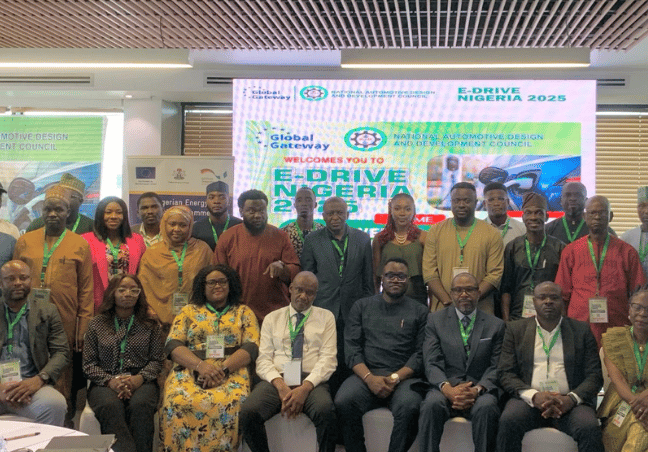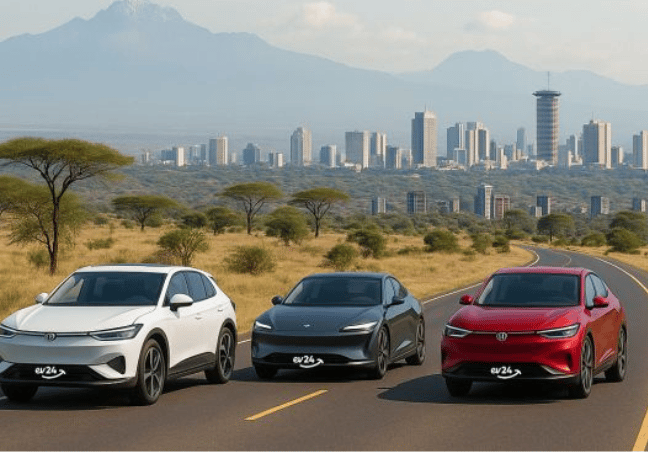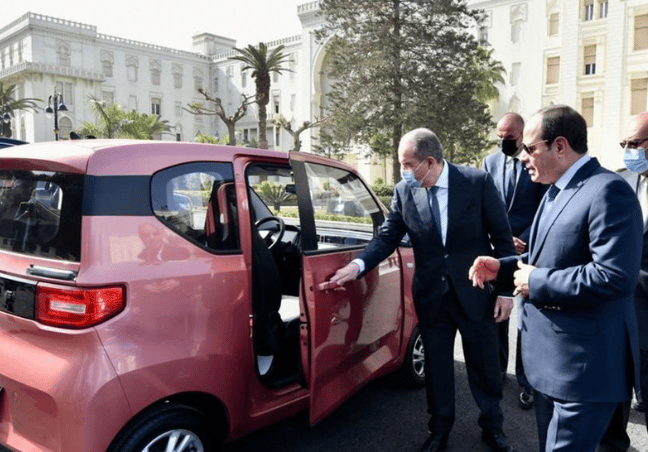- Mobility Rising
- Posts
- Online seller EV24 launches in East Africa
Online seller EV24 launches in East Africa
Dear subscriber,
In a young sector it’s natural to focus on the products, the vehicles, vroom-vroom. But as mature market veterans know, who sells vehicles can matter as much as who makes them. So we turn our attention to that today with some exclusive news.
Brian Ambani - Editor
Online car seller Auto24 is launching its EV subsidiary, EV24, in East Africa, the firm’s Business Development Manager Younes Rabeh told Mobility Rising in an exclusive interview. EV24 will be based in Kenya, a hub for the EV sector in adjacent markets like Uganda, Rwanda, Burundi, DRC and South Sudan. Auto24 is backed by global automaker Stellantis. |
Platforms like EV24 are lowering entry barriers by handling logistics, import duties, registration and offering online ordering, making EV access easier, particularly in markets where traditional dealerships are few.
Online car platforms in Africa face unique issues like a lack of trust, but also common ones like high EV prices and limited financing options for buyers.
Our take: Low prices and efficient delivery will be key if EV24 is to scale in a price-sensitive market… Read more (2 min)
The Egyptian government has granted Mansour Group, one of Africa’s leading automotive dealers, a 126,000 square-metre parcel of land on a 50-year lease to build an electric car factory. Mansour is the distributor of top car brands including General Motors, Isuzu, MG, Peugeot and Opel. The company plans to complete the factory within 12 months. |
Egypt is one of Africa’s top three EV markets. But it relies on imports, mainly from China. The Mansour factory, in addition to other privately-owned factories in the pipeline, will reduce Egypt’s reliance on imported electric cars.
Like the rest of Africa, Egypt currently imports critical, high-cost EV components, especially lithium-ion batteries and electric motors. This dependency increases production costs, making the final product costlier.
Our take: Egypt's success will be measured by its ability to pivot from mere assembly to deep local manufacturing… Read more (2 min)
Many Nigerian electric vehicle charging companies lack access to reliable data, making it difficult to plan network expansions strategically, says Philip Ogunleye, the founder and CEO of Vine Mobility. Data such as utilisation rates help charge operators make informed decisions on where to install stations and how to optimise their performance, says Mr Ogunleye. |
Vine Mobility is a Nigerian EV software company that manages and monitors charging stations. It began by piloting chargers in residential areas and is now expanding its network into business premises.
Nigeria’s lack of clear standards for chargers is also problematic, warns Mr Ogunleye. “Without such regulation, substandard or incompatible chargers could flood the market, leading to safety hazards or equipment damage.”


E-mobility experts pose during the NADDC E-Drive Summit in Nigeria
Jobs
💼 Join Leta as a Special Projects Lead (Kenya)
👨🏻💼 Become Dodai’s Customer Experience Manager (Ethiopia)
👩🏻💼 Apply for Procurement Supervisor’s role at Zeekr International (South Africa)
Events
🗓️ Attend a webinar on Dakar’s electric public transport (Oct 28)
🗓️ Register for the EV Revolution Africa Conference in Ghana (Dec 3)
📆 Book a slot at the Africa EVs Expo in Kenya (Dec 4)
Various
💺 South Africa secures permanent Seat on OICA Council
🤔 CFAO Mobility: Are electric vehicles the future?
🧐 Comparison of driving costs between ICE and EVs in South Africa
Seen on LinkedIn
Michael Kihato, an urban planner, says, “Many projects I am part of today have shifted to focusing on vehicle electrification. There is a good reason for this. EVs are backed by substantial funding (follow the money, they say), the technology is increasingly accessible, and manufacturers — especially from China — are delivering better quality at lower cost.”


